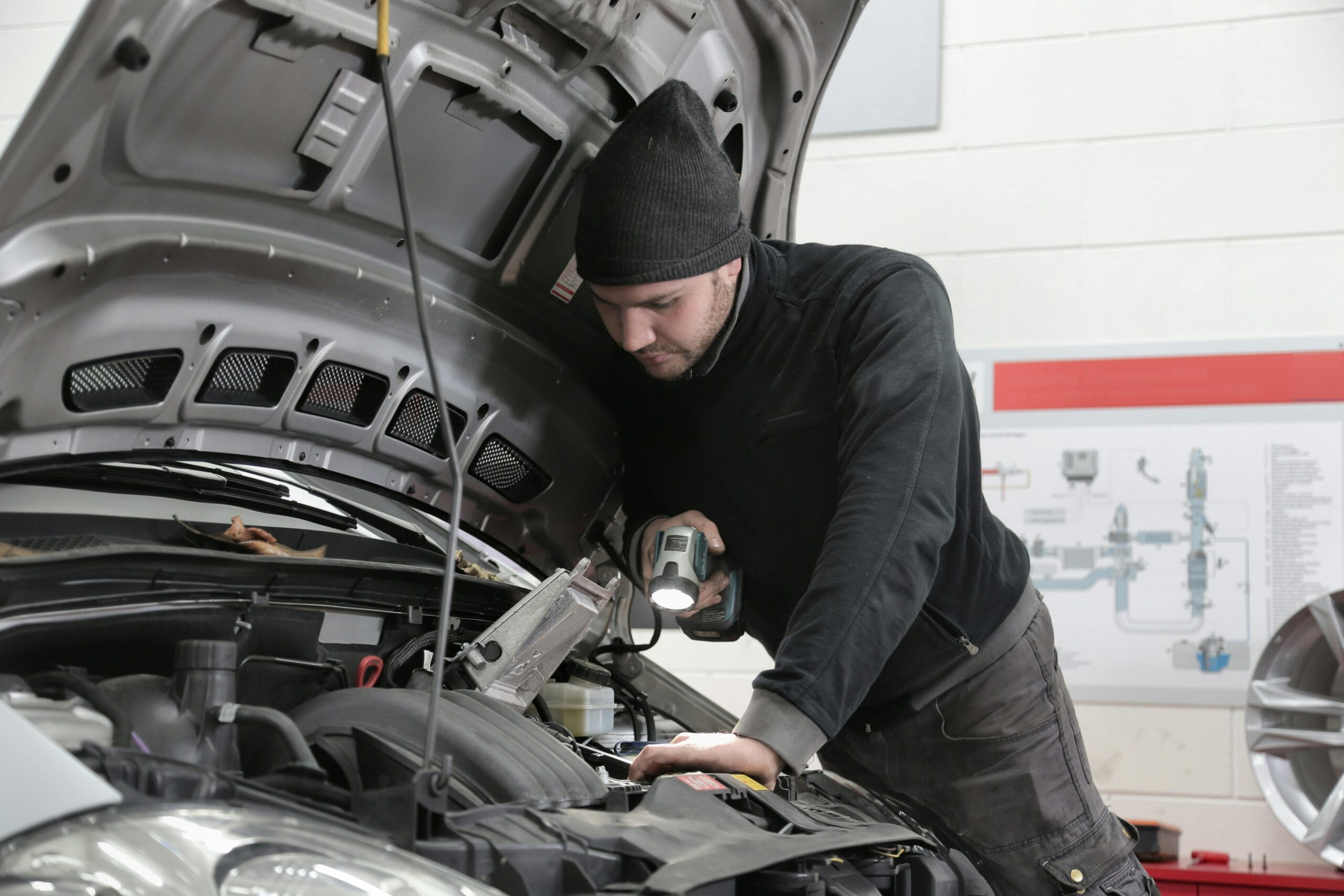Maintaining your car is crucial for ensuring its longevity, performance, and safety. Regular maintenance can help prevent costly repairs, improve fuel efficiency, and reduce the risk of breakdowns. This comprehensive guide will cover essential car maintenance tips every driver should know, providing you with the knowledge and tools to keep your vehicle in top condition.
1. Regularly Check and Change Your Oil
Importance: Oil is the lifeblood of your engine. It lubricates the engine's moving parts, reduces friction, and helps keep the engine cool. Regular oil changes are essential for maintaining engine health.
How to Do It:
- Check Oil Level: Use the dipstick to check the oil level at least once a month. Ensure your car is parked on level ground and the engine is cool.
- Look for Changes: Examine the oil's color and consistency. Clean oil is amber and slightly translucent. If it's dark and dirty, it's time for a change.
- Change Oil: Follow your vehicle’s manual for the recommended oil change intervals. Typically, this is every 5,000 to 7,500 kilometers. Use the correct oil grade as specified by the manufacturer.
Tip: Schedule regular oil changes with a trusted mechanic or service center to ensure it’s done correctly.
2. Keep Your Tires in Good Condition
Importance: Tires are your vehicle’s only contact with the road. Properly maintained tires ensure safety, improve fuel efficiency, and enhance driving comfort.
How to Do It:
- Check Tire Pressure: Use a tire pressure gauge to check the pressure monthly and before long trips. Inflate tires to the recommended PSI (pounds per square inch) found in your vehicle’s manual or on the driver’s side door jamb.
- Inspect Tread Depth: Use the penny test to check tread depth. Insert a penny into the tire tread with Lincoln's head upside down. If you can see the top of Lincoln’s head, your tread is too low, and it’s time to replace the tires.
- Rotate Tires: Rotate your tires every 8,000 to 10,000 kilometers to ensure even wear.
Tip: Keep an eye out for uneven wear patterns, which can indicate alignment or suspension issues.
3. Monitor Fluid Levels
Importance: Your vehicle relies on various fluids to operate smoothly. Regularly checking and topping off these fluids can prevent major issues.
How to Do It:
- Brake Fluid: Check the brake fluid reservoir monthly. Low levels can indicate a leak or worn brake pads.
- Coolant: Check the coolant level when the engine is cool. Refill as needed and ensure the coolant mixture is correct (usually 50% coolant and 50% water).
- Transmission Fluid: Check the transmission fluid level and condition according to your vehicle’s manual. The fluid should be pinkish-red and clear.
- Power Steering Fluid: Ensure the power steering fluid is at the correct level to avoid steering issues.
- Windshield Washer Fluid: Keep this fluid topped off for clear visibility.
Tip: Schedule a full fluid check during regular maintenance visits to ensure nothing is overlooked.
4. Maintain Your Brakes
Importance: Brakes are crucial for your safety. Regular maintenance ensures they perform effectively when you need them most.
How to Do It:
- Listen for Noises: Squeaking, grinding, or clicking noises can indicate worn brake pads or other issues.
- Feel for Changes: If your car pulls to one side when braking, or if the brake pedal feels spongy, it’s time for an inspection.
- Replace Brake Pads: Brake pads typically need replacement every 40,000 to 60,000 kilometers, but this can vary based on driving habits and conditions.
Tip: Have your brakes inspected during oil changes to catch any issues early.
5. Keep Your Battery in Good Health
Importance: A healthy battery ensures your car starts reliably and powers all electrical components.
How to Do It:
- Inspect Battery Terminals: Check for corrosion on the terminals and clean them with a mixture of baking soda and water if necessary.
- Check Voltage: Use a multimeter to check the battery voltage. A fully charged battery should read around 12.6 volts.
- Replace When Necessary: Most batteries last about 3 to 5 years. If your battery is old or showing signs of weakness, consider replacing it.
Tip: Keep jumper cables in your car and know how to use them in case of emergencies.
6. Replace Wiper Blades Regularly
Importance: Good visibility is essential for safe driving. Wiper blades should effectively clear your windshield of rain, snow, and debris.
How to Do It:
- Inspect Blades: Check for cracks, splits, or signs of wear every few months.
- Replace Blades: Replace wiper blades every 6 to 12 months, or sooner if they leave streaks or miss spots.
- Use the Right Size: Refer to your vehicle’s manual to ensure you purchase the correct size blades.
Tip: Consider using winter wiper blades in colder climates for better performance in snow and ice.
7. Keep Your Lights Functional
Importance: Properly functioning lights are crucial for visibility and communication with other drivers.
How to Do It:
- Check All Lights: Regularly check your headlights, brake lights, turn signals, and interior lights to ensure they are working correctly.
- Replace Bulbs: Replace any burnt-out bulbs promptly. Use the correct type and wattage as specified by your vehicle’s manual.
- Clean Lenses: Keep light lenses clean to ensure maximum brightness.
Tip: Consider upgrading to LED or halogen bulbs for better visibility and longer lifespan.
8. Maintain the Air Conditioning and Heating System
Importance: A functional air conditioning and heating system ensures comfort and safety, especially in extreme weather conditions.
How to Do It:
- Check Functionality: Test the system regularly to ensure it’s working correctly.
- Inspect for Leaks: Look for any signs of refrigerant leaks, such as oily residue on the components.
- Change Cabin Air Filter: Replace the cabin air filter every 15,000 to 30,000 kilometers to maintain air quality inside your car.
Tip: Have your system inspected by a professional annually, especially before summer and winter seasons.
9. Schedule Regular Professional Inspections
Importance: Professional inspections can catch issues that you might overlook, ensuring your car remains in optimal condition.
How to Do It:
- Follow Service Intervals: Adhere to the service intervals recommended by your vehicle’s manufacturer.
- Full Vehicle Inspection: Schedule a comprehensive inspection at least once a year, covering all major systems and components.
- Choose a Reputable Mechanic: Find a trustworthy mechanic or service center for reliable inspections and maintenance.
Tip: Keep a maintenance log to track all services and repairs, which can help with resale value and warranty claims.
10. Understand Warning Lights
Importance: Dashboard warning lights alert you to potential issues. Understanding them can help you take prompt action.
Common Warning Lights:
- Check Engine Light: Indicates a variety of issues, from minor to serious. Have it checked by a professional as soon as possible.
- Oil Pressure Light: Signals low oil pressure, which can cause engine damage. Stop driving and check the oil level immediately.
- Battery Light: Indicates a problem with the charging system. Check the battery and alternator.
- Brake Warning Light: Could mean low brake fluid or an issue with the brake system. Inspect immediately.
Tip: Refer to your vehicle’s manual for a complete list of warning lights and their meanings.
Why Choose Pro Learners Driving School in Campbelltown?
At Pro Learners Driving School, we emphasize not only driving skills but also the importance of vehicle maintenance. Here’s why you should choose us:
- Experienced Instructors: Our instructors are knowledgeable about both driving techniques and basic car maintenance.
- Comprehensive Curriculum: We provide lessons that cover essential driving skills and car care tips.
- Personalized Lessons: Our lessons are tailored to your individual needs and experience level.
- Modern Vehicles: Our fleet of vehicles is well-maintained and equipped with the latest safety features.
- Flexible Scheduling: We offer flexible lesson times to fit your schedule, ensuring consistent practice and learning.
Final Thoughts
Regular car maintenance is essential for ensuring the safety, performance, and longevity of your vehicle. By following the tips outlined in this guide, you can keep your car in top condition and enjoy a smoother, safer driving experience. At Pro Learners Driving School in Campbelltown, we are dedicated to helping you become a confident driver who understands the importance of vehicle care.
Ready to enhance your driving skills and knowledge about car maintenance? Contact Pro Learners Driving School today to book your lessons and start your journey towards becoming a responsible and skilled driver!

